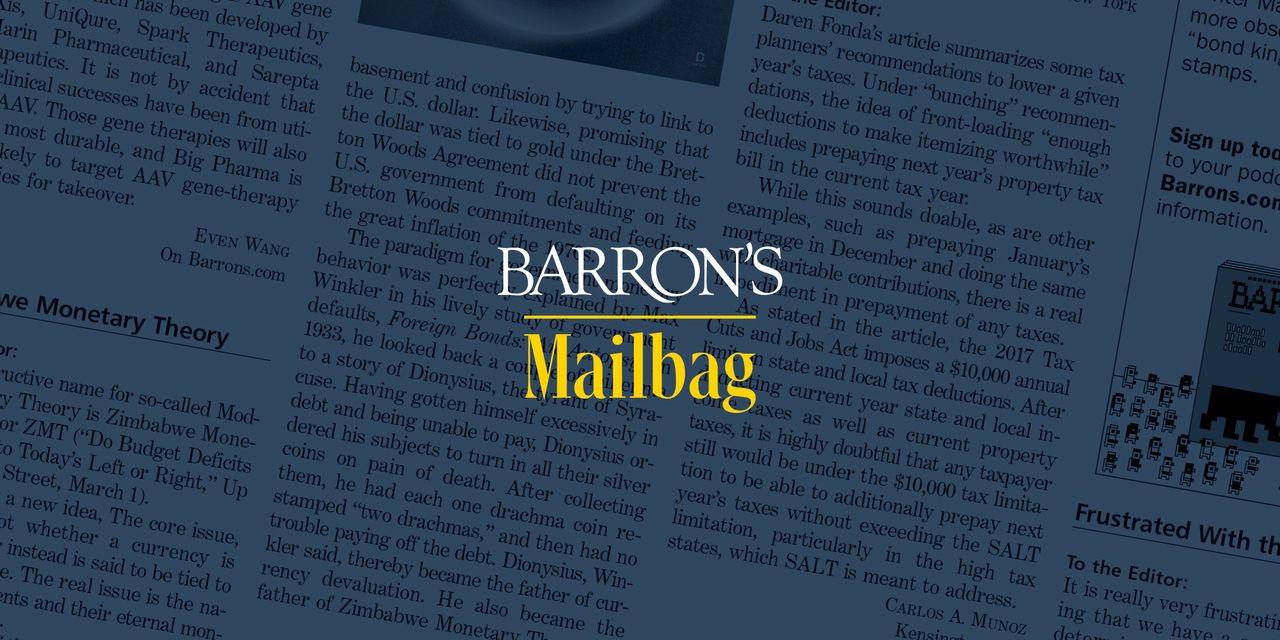Daren Fonda’s article on ESG issues is excellent (“Companies Under Siege,” Cover Story, May 4). It is well-researched and balanced, and captures the essence of the issues as well as what we do as investors. The market will continue to ration capital toward companies that manage their financially material ESG exposures—both the risks and opportunities—in a manner that is consistent with long-term value creation.
The market-led price discovery process, which depends on transparency and information flow, dictates that we focus on the real-world changes occurring around us and how well any given company is able to manage through those changes.
It is important for all investors to stay focused on these realities; and we see that the vast majority of corporations worldwide are working to navigate the real-world changes in the global energy system and in workforce demographics.
We call this a voluntary market-led solution, and it is the essence of capitalism. Messy in the short term, but extremely efficient in the long term.
John Streur, Chairman, Calvert Research and Management, Washington, D.C.
To the Editor:
If companies are going to wade into the highly contentious political and/or cultural controversies of today, they shouldn’t be surprised when they get a hard reaction from people who feel differently than they do. And, contrary to Fonda’s article, there are a healthy number of people and investors who disagree with the ESG movement’s progressive advocacy and hypocrisy. Why any CEO thinks that it’s good business to take a controversial position on today’s cultural/political issues and immediately alienate half of your customer base is beyond me. Maybe businesses should just stay in their lane, focus on their profitability and growth, and leave the cultural debate to the politicians and the cable news pundits.
Richard Rosen, New York
To the Editor:
I appreciate the evenhanded and pragmatic approach to anti-ESG blowback in your cover story. The private sector has become a firewall when it comes to maintaining social progress, especially when government can’t or won’t lead. On the issue of abortion, if statewide votes in Kansas, Kentucky, Wisconsin, and Michigan are any indication, it isn’t as divisive as we have been led to believe. Most people don’t want elected officials coming between them and medical decisions they are making with their healthcare provider. Companies need to do more to stand up against this kind of overreach.
Jennifer Stark, Washington, D.C.
Deficit Spending
To the Editor:
Inflation isn’t the problem; it’s the symptom (“Inflation Keeps a Tight Grip. The Fed Still Has More Reason to Raise Rates Than Cut,” The Economy, May 5). The problem is unsustainable government deficit spending. As long as the Federal Reserve continues to print money to monetize the debt, inflation will continue. Crippling the economy with high interest rates won’t reduce inflation and will increase borrowing costs for the government.
Adam Mayer, On Barrons.com
Commodities Investing
To the Editor:
In “This Fund Pro Wins by Betting on Former Losers. 3 of His Contrarian Picks” (Interview, May 4), Matthew Fine, portfolio manager at Third Avenue Management states that “there is no metal or natural resource more critical to renewable energy than copper. It is critical to the basic functioning of modern society, but also incredibly scarce.” Fine goes on to say that “renewable energy will also drive demand, whether it is electric vehicles, wind energy, or solar. The technologies, and facilitating their connection to the grid, have the potential to be a demand accelerant for copper.”
The direct connection between modern technologies and much frowned-upon industries, such as mining, are often obscured and presented as something “intangible,” something not having a physical presence—the cloud comes to mind. The digital data in the cloud are stored in a physical environment—on physical servers across the globe on terra firma. Modern technologies operate in a tangible environment, using tangible, scarce, and essential natural resources, such as land, water, certain metals, and fossil fuels. Mined metals and fossil fuels to varying degrees are, and will continue to be, critical to the development of modern technologies and the transition to renewable energy.
Natural resources and the ever-increasing need for the maintenance and the quest for improvement of new technologies are interdependent to a certain degree and will continue their co-dependence for the foreseeable future. Commodities investing is here to stay.
Irakli G. Mirzashvili, Cedar Park, Texas
Cash-Secured Puts
To the Editor:
I couldn’t agree more with the cash-secured put strategy (“The Debt-Ceiling Standoff Will Create Panic in the Stock Market. How to Profit From It,” The Striking Price, May 3). Who knows if, when, and to what magnitude the perceived recession will arrive or if the government will or won’t default on its debt. But the fact that the volatility opera has begun is very much true.
This strategy, in my opinion, works in any market environment for those who wish to build a position in securities they believe are below intrinsic value. It’s a win-win in this case, collecting passive premium if the position remains out of the money, or building your positions at a lower price (strike price) than what you would’ve bought at otherwise.
Alec Bicknese, New York
Send letters to: [email protected]. To be considered for publication, correspondence must bear the writer’s name, address, and phone number. Letters are subject to editing.
Read the full article here


